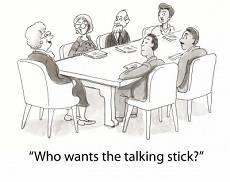May 10, 2024
IN Magazine Supplement: internal communications for hybrid working cultures
 One of the many important talking points of The Great Workplace Conversation and the widespread adoption of hybrid working over the past three years has been how we talk about change. Whenever anybody refers to people ‘returning to work’, they can expect to be corrected by somebody else pointing out that most people never stopped working during the various lockdowns. They’d stopped going into work. In the same way, people are increasingly likely to point out that the office and the workplace are often two different things. Words matter. Precision matters. Shared ideas matter. Engagement matters. (more…)
One of the many important talking points of The Great Workplace Conversation and the widespread adoption of hybrid working over the past three years has been how we talk about change. Whenever anybody refers to people ‘returning to work’, they can expect to be corrected by somebody else pointing out that most people never stopped working during the various lockdowns. They’d stopped going into work. In the same way, people are increasingly likely to point out that the office and the workplace are often two different things. Words matter. Precision matters. Shared ideas matter. Engagement matters. (more…)











 There is a disparity between the causes of communications anxiety between men and women, claims new research conducted by RADA in business. Male employees are 45 percent more likely than women to feel anxious when socialising with their work colleagues, while women are most scared of giving a presentation. Team building events were also found to be more challenging for men, with almost a fifth (19 percent) reporting feelings of communications anxiety. Work social events followed, with 17 percent reporting the same feelings. In contrast, the report found that female employees experience greater levels of anxiety when giving presentations in front of a group, to colleagues, or to management. The evidence suggests that while men require more help with skills around spontaneous communication, for women it is about standing their ground and getting their voice heard when stepping into the spotlight – often in situations that may have a significant impact on their career path. Notably, the research shows that women are also 39 percent more likely to experience workplace anxiety than men when in a job interview, and 37 percent more likely when negotiating a pay rise.
There is a disparity between the causes of communications anxiety between men and women, claims new research conducted by RADA in business. Male employees are 45 percent more likely than women to feel anxious when socialising with their work colleagues, while women are most scared of giving a presentation. Team building events were also found to be more challenging for men, with almost a fifth (19 percent) reporting feelings of communications anxiety. Work social events followed, with 17 percent reporting the same feelings. In contrast, the report found that female employees experience greater levels of anxiety when giving presentations in front of a group, to colleagues, or to management. The evidence suggests that while men require more help with skills around spontaneous communication, for women it is about standing their ground and getting their voice heard when stepping into the spotlight – often in situations that may have a significant impact on their career path. Notably, the research shows that women are also 39 percent more likely to experience workplace anxiety than men when in a job interview, and 37 percent more likely when negotiating a pay rise.
 Online messaging is the most common way for millennial bosses to communicate with their direct reports, with over half (55 percent) preferring to use this digital method, followed by email at 28 percent, a new survey claims. Only 14 percent said their favoured way to communicate is in person, and 3 percent said via phone. As millennials (born 1981-1996) increasingly moving into management positions, the new Korn Ferry survey also found that when interviewing for management positions, millennials say that making an impact on organisational culture is most important to them, with salary being the least important. The survey also found that compared with Gen Xers and Baby Boomers, knowing what is coming next is critical for millennial bosses. Nearly three quarters (74 percent) said a clear advancement path (e.g. next two positions) is more important for millennial bosses, with 49 percent saying it is much more important.
Online messaging is the most common way for millennial bosses to communicate with their direct reports, with over half (55 percent) preferring to use this digital method, followed by email at 28 percent, a new survey claims. Only 14 percent said their favoured way to communicate is in person, and 3 percent said via phone. As millennials (born 1981-1996) increasingly moving into management positions, the new Korn Ferry survey also found that when interviewing for management positions, millennials say that making an impact on organisational culture is most important to them, with salary being the least important. The survey also found that compared with Gen Xers and Baby Boomers, knowing what is coming next is critical for millennial bosses. Nearly three quarters (74 percent) said a clear advancement path (e.g. next two positions) is more important for millennial bosses, with 49 percent saying it is much more important.
















December 16, 2019
Avoiding the minefield of WhatsApp communications
by Louise Lawrence • Comment, Legal news, Workplace